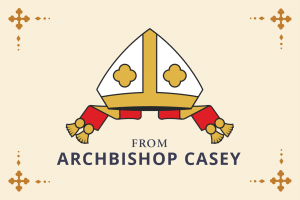We begin April with the liturgical commemoration of the Lord’s Passion, Death and Resurrection. There are cries of “Hosanna,” preparations for the Passover Feast, plots of betrayal, moments of intimacy, fear and loneliness. Only after passing through the darkness of Good Friday and the silence of Holy Saturday do we experience the light of the Resurrection as it overcomes the darkness at the beginning of the Great Easter Vigil. We are witnesses to the Lord’s triumph over sin and death, but we also see the havoc of suffering and the pain which He endured as consequences of sin.
Pope St. John Paul II clearly stated that our “redemption was accomplished through the Cross of Christ, that is, through His suffering” (Salvifici doloris, 3). He goes on to say that through our union with Christ in baptism, we, as the members of Christ’s Church, are given a share in His work of redemption. The Holy Father said this happens in a particular way when suffering enters our life. “This happens, as we know, at different moments in life, it takes place in different ways, it assumes different dimensions; nevertheless, in whatever form, suffering seems to be, and is, almost inseparable from man’s earthly existence” (SD, 3).
Each of us at one time or another, and to varying degrees, is subject to suffering in this world which is wounded by sin. This is not the world as God intended it to be from the beginning. Through the Paschal Mystery of Christ and by the outpouring of the Holy Spirit, God has redeemed the world, but its restoration in Christ is not yet perfectly complete. Sin is still being purged until the Kingdom of God is fully established. In the meantime, each of us, baptized into the suffering and death of Christ, is called to share in the mystery of Christ’s redemptive suffering. We suffer as we root out sin from our own lives, and we suffer because sin exists in the world around us. Suffering is, as Pope John Paul II said, inevitable in this world.
But how are we to respond to suffering? Many turn away from God when they experience suffering, thinking that any God who is truly good would not permit us to experience such things. Yet only God is capable of bringing good out of the most challenging and painful moments in our lives. In the Resurrection of Christ, God triumphs over sin and even death. These do not have the last word and are not definitive. Reflecting on this, St. Paul exclaimed, “Death is swallowed up in victory. Where, O death, is your victory? Where, O death, is your sting?” (1 Cor. 15:54-55).
This mystery is precisely what we celebrate at Easter: Christ has overcome sin, suffering and death. Because of the Resurrection, we can have hope in something greater than life’s limitations in this broken world. Although we do not cease to experience limitations and suffering, they are not without meaning. Suffering, through the Cross of Christ, has become a means by which we share in Christ’s redemptive work. Through His greatest act of love, Jesus accompanies us when we suffer and invites us to join Him in offering them for the benefit of all. Therefore, our moments of suffering are not empty and void; rather, they are an avenue by which God’s grace flows upon a world in need.
As he endured various trials, St. Paul reflected on suffering united to Christ’s and declared, “it is Christ in you, the hope for glory” (Col. 1:27). We Christians have an opportunity, even in our suffering, to be ambassadors of hope!


